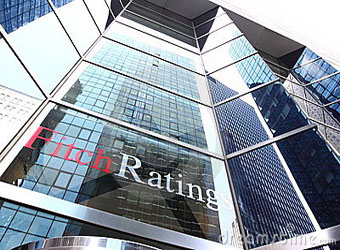Qatar’s government may cut its capital spending on economic projects and infrastructure if damage to its economy from sanctions intensifies, Fitch Ratings said Monday as it cut the country’s credit rating.
Fitch lowered Qatar by one notch to AA-minus with a negative outlook. That brought it into line with the other two major rating agencies, Moody’s and Standard & Poor’s, which assess Qatar at the same level and also have negative outlooks for it.
Saudi Arabia, the United Arab Emirates, Bahrain and Egypt cut ties with Qatar on June 5, accusing it of backing terrorism, which it denies. They imposed sanctions closing Qatar’s only land border, with Saudi Arabia, and disrupted its maritime shipping routes by ending its use of Dubai as a trans-shipment hub.
Fitch noted that even before the sanctions, Qatar had shrunk its capital spending plans for 2014-2024 to $130 billion from $180 billion in response to low oil and gas prices.
“The government has prepared scenarios for further cuts to capital spending in case oil prices fall again or in case pressures from the embargo intensify,” it said.
Fitch predicted the Qatari government’s net foreign assets would fall to 146 percent of gross domestic product this year from 185 percent last year, as the government moves money into local banks to offset outflows due to the sanctions.
Outflows are likely to slow in coming months because a large proportion of deposits from the Gulf Cooperation Council countries sanctioning Qatar have already been withdrawn, Fitch said.
But it added: “Much non-GCC external funding is being rolled over at a higher cost, but the escalation of tensions in the region could see it flee.”
Fitch predicted Qatar’s economic growth would slow to 2.0 percent in 2017 and 1.3 percent next year, from 2.2 percent in 2016 – forecasts that are considerably more bearish than those of many private economists.
The sanctions will hurt Qatar’s tourism and transport sectors in particular, Fitch said, estimating that Qatar Airways had lost about 10 percent of its passenger flow. A prolonged rupture in the GCC could undermine the prospects for many of Qatar’s private sector investments, it added.
Before the diplomatic rift, all six GCC countries agreed to introduce a 5 percent value-added tax next year as well as an excise tax on tobacco and sugary drinks. Fitch said it understood Qatar remained committed to those plans.
Source: Reuters
